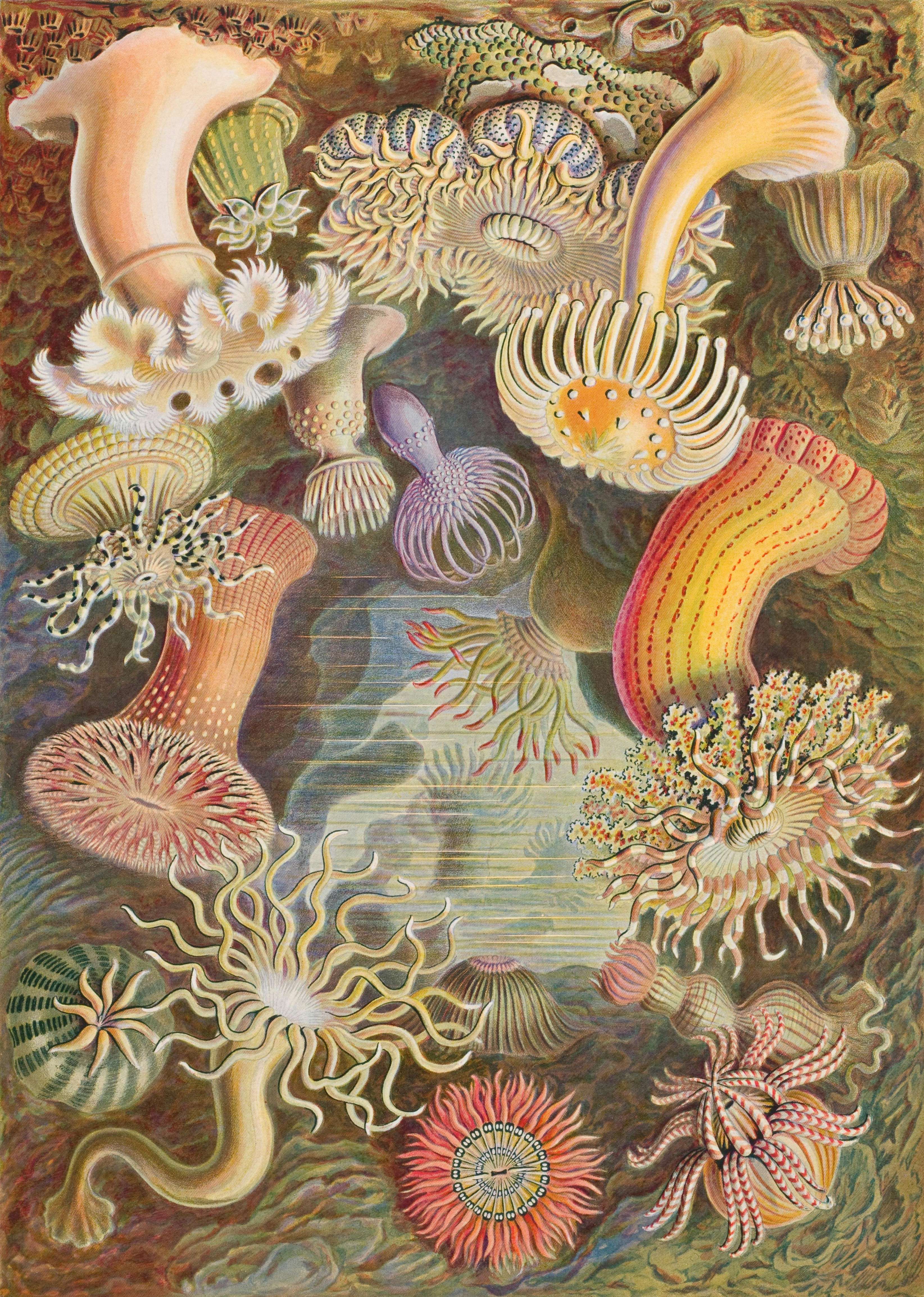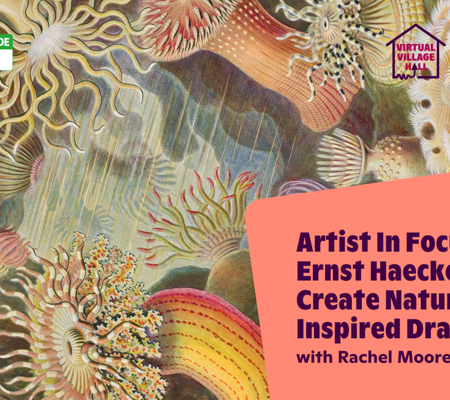Artist in Focus: Ernst Haeckel – Create Nature-Inspired Drawings
Tutor: Rachel Moore, print artist
Welcome to Artist in Focus! A series of relaxed monthly art sessions with VVH print maker and artist, Rachel Moore. Rachel introduces a mix of well-known and lesser-known artists working in painting, printmaking, textiles and sculpture.
In each session, Rachel explores a different artist’s story and work before leading three short, creative exercises inspired by the artist’s style. These sessions are all about loosening up, building on your knowledge, experimenting with new techniques and filling your sketch book with fresh ideas. Rachel finishes each session with a focused activity to explore on your own, helping you develop your skills, and spark new ways of thinking about art.
Perfect for all levels, Artist in Focus is for anyone looking to give art a go, explore new techniques, expand their skills and knowledge, and fill their sketch book with fresh ideas.
In this session, Rachel introduces the work of Ernst Haeckel, a German artist and scientist who used his scientific knowledge of the natural world to create beautifully detailed drawings.
In the late 19th century, he studied tiny sea creatures, plants, shells, and corals under the microscope and turned them into drawings that were both detailed and beautiful. His work was so symmetrical and intricate that some pieces look like designs for jewellery or buildings.
In this session, we’ll use Haeckel’s approach as inspiration, exploring patterns in nature and creating our own imaginative designs from what we see.
Preparation
Prepare your materials and find a sturdy table or floor to work on.
Video time
30 minutes
- Sketching Pencil (2B or 4B)
- Medium sized paintbrushes
- Watercolours or acrylic paints in your choice of colour
- Tracing paper or see-through greaseproof paper
- Scissors
- Thick paper such as watercolour paper, cardboard (even from the recycling bin) or lining wallpaper.
The idea isn’t to buy lots of new equipment but to use what you have!















